With thanks to Don and Anne Doiron
In the hot summer of 1955, two very pregnant women rushed to St. Michael’s Hospital in Toronto. They were strangers. One was a 33-year-old nanny from Chile. The other was 24, a stenographer, seventh-generation Scottish Canadian and proud former Wren, a member of the Women’s Royal Canadian Naval Service. Both planned to relinquish their babies for adoption. In a truth stranger than fiction, unbeknownst to the women, both soon-to-be-born babies had the same father.
You may unsubscribe from any of our newsletters at any time.
I’m the first-born, arriving on June 23, 1955. My brother, Don Doiron, arrived a week later on July 1. My birth mother was Florence McLean. Don’s was Ana Cifuentes. Did they meet? Perhaps their wheelchairs silently glided past each other as one orderly discharged Florence and another rushed Ana to the delivery room. I like to think that they smiled at each other, a solidarity of wronged women defying an era that hypocritically let birth fathers off scot-free while telling birth mothers they should be ashamed.
Did Don and I meet? Did we lock eyes with the squalling newborn in the next bassinet, stop crying and share a moment as almost twins? We’ll never know. We only know it took 62 years before we could meet again.
In 2015, when I listed my DNA on Ancestry.ca, like so many adoptees it opened a door long closed to me. On Thanksgiving 2017, I matched a stranger in New Brunswick at 1,830 centimorgans, the unit that measures genetic linkage. Excited to discover that this falls in the range for a half-sibling, we exchanged Ancestry messages, then emails, then phone calls. On May 23, 2018, Don and his wife, Anne, flew from Saint John to Toronto where we met at his daughter’s condo. We connected as kin.
Over the last five years, as we’ve shared our adoption journeys, I’ve come to see that our individual stories speak Canadian volumes. About adoption myth and reality. About the laws and social conventions that kept us apart for over half a century. About place, culture, language, gender, class and disability. As half-siblings separated at birth, we’re a living petri dish for the study of nature vs. nurture.
Don grew up in a loving home. I did not. Don speaks English and French. I’m not so lucky. He’s an athlete and a hockey coach. I’m disabled. I’m an English teacher and writer; my brother the electrician isn’t much of a reader anymore. We are both divorced or separated and raised two children in homes with springer spaniels. He’s delighted the glass is half full while I’m already analyzing why the bloody thing is so empty. And yet, in his blue-grey eyes, I see my own. I find comfort, kindness and something for which I will always be thankful: a brother’s open heart.
In June 2022, the apartment balcony atop mine held a nest of delusional baby birds who believed dawn occurred at 4:30 a.m. — when it was pitch dark and I was, and deserved to remain, fast asleep. Anyone would resent being awakened by their chirp-screaming, but, in writing this essay, I realized something more. I was incommensurately infuriated by these fledglings because I was jealous. They had full confidence each and every day that they could wake their mother and she would feed them. It never occurred to these vulnerable newborns that she might push them out of the nest to fall to a fate unknown.
In the 1950s, when human babies born out of wedlock were pushed out of our mothers’ nests, we fell to the care of the Children’s Aid. In whitewashed adoption mythology, a healthy, happy, cooing newborn went straight to a loving home, where everyone forgot adoption occurred. The child’s family, culture and medical history were all magically wiped clean with no loss to anyone.
Even as adults, adoptees have long been treated like children who need to be protected from our own truths. When we came of age in the 1970s, Don and I had to apply for the scant details, called non-identifying information, the government then permitted us to know. We received sparse biographies of our birth mothers (age, birthplace, education and occupation) and next to nothing about our birth fathers. It wasn’t enough for either of us.
Today, Don and I are still piecing together our stories. Not everything we’ve learned has been happy. Some of our shared history is heart-rending. But we claim every bit of our lives as our truth, as the story we have every right to know, to celebrate and to mourn, to pass on to our children.
Don’s mother, Ana, grew up in a large family in Chillán, Chile, a town founded by a Spanish invader in 1580. It’s a rich agricultural area, halfway down the country’s long coastline. Local Indigenous groups, such as the Mapuche, resisted the Spanish in battle and in politics. Don’s DNA reveals that he and Ana are descended from these Indigenous resisters.
Ana’s father was a cattle rancher. In 1952, while working as a translator, she met a Canadian family posted in Chile by the United Nations. The family invited her to come to Canada and work for them as a nanny. Two years later in Toronto, she didn’t tell her devout Catholic family members back home that she was pregnant, feeling they would not welcome her child. About our birth father, Don’s records state only that Ana found it difficult to mention him and she did not want him contacted about her baby.
My birth mother, Florence, was the older daughter of two, born on her father’s family farm near London, Ont. When she was eight, her father abandoned his wife and daughters to work at the Calgary Stampede. Forced to survive on the income of a single woman in the 1930s, my grandmother and her girls moved to Toronto and boarded in other people’s homes — all three of them sharing one room.
Florence did well in school, but with no money to fulfil her dream of being a teacher, she graduated in Grade 10, took a stenography course and joined the Wrens. My records likewise state that she could not discuss my birth father but did want him told about me. The Children’s Aid left phone messages with his mother. He never called back.
Once Don and I left the hospital, our stories dramatically diverged. Placed with Catholic Children’s Aid, Don was adopted at three months. I had six different foster homes, two long stints in convalescent homes and wasn’t adopted until I was almost three years old. In an odd coincidence, we both joined families with two adopted and two non-adopted siblings, but only one family stayed in Toronto.
When Don was four, his family moved back to their hometown of Rogersville, N.B., where he played all the local sports, excelling in hockey. Embodying the boy in The Hockey Sweater, the iconic short story by Roch Carrier, he loved the Montreal Canadiens and reviled the Leafs. Don describes his boyhood as mostly happy, but perhaps because of his switch from English to French, school proved a struggle. He graduated high school after living away from home to attend an English school. He had a close relationship with his mom and has remained close to his siblings.
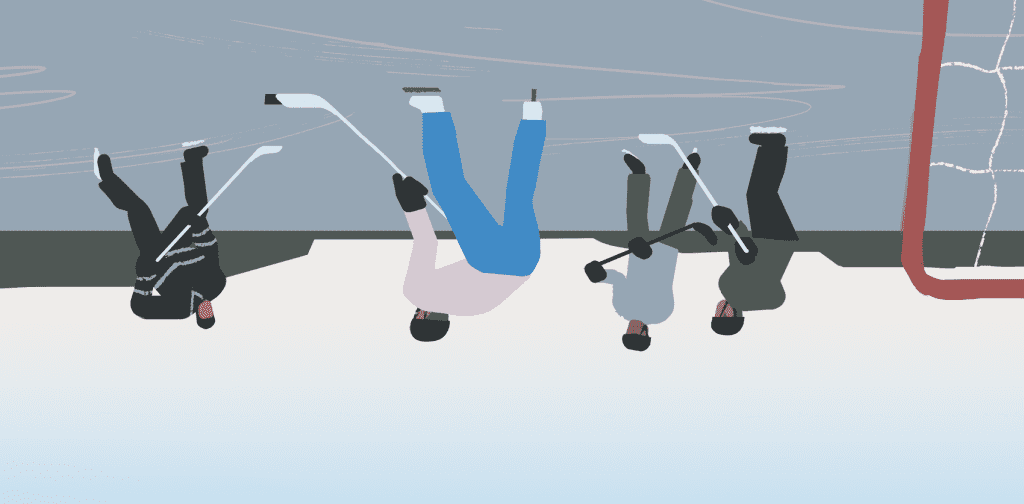
With the congenital abnormalities we once called “birth defects” in my feet, I was deemed unadoptable until it became clear I would walk. Doctors had difficulty diagnosing my other health issues: bedwetting, nightmares, sleepwalking and slow growth. They labelled them all as “failure to thrive.” Today, I call it a trauma response. Beyond being pushed out of a foster home every few months, I’m also the victim of infant sexual abuse. Somewhere in one of my foster homes, I was repeatedly raped by a man I can never name or accuse. I was too little to know who he was, but he is my first memory.
I’m unsure how much the Children’s Aid knew about my abuse or how much they revealed to my parents, David and Peggy Palmer, when I was adopted in 1958. But in the 1950s, silence ruled and my adoption was never discussed. My father loved me, but my mother struggled to do so. She was emotionally distant and occasionally cruel. Watching my non-adopted brother and sister claim my mother’s love like demanding baby birds, I lived with my family until I left for university at 18. For all those 15 years, I never felt at home.
As different as our childhoods were, from tiny Rogersville with about 1,000 residents to metropolitan Toronto, Don and I share a strikingly similar location in Canadian history. Virtually all of Don’s family are Acadians, descendants of the French-speaking Catholic colony. Beginning in 1755 in “le Grand Dérangement” (the Great Upheaval), the British government forcibly removed more than three-quarters of the Acadian population, some 11,500 souls, from the maritime colonies. Similarly, my birth mother’s founding Canadian ancestor, Duncan McLean, arrived in 1819 from Scotland at age 18. He joined the Scottish diaspora of families kicked off their farms by the British in the land grab that began in 1750 known as the Highland Clearances. Sadly, this motif of enforced relocation and colonial violence repeats in our history of personal violence. Don and I were forcibly relocated by the state due to the actions of our birth father, a veteran of Her Majesty’s Royal Canadian Navy.
When Don held his newborn daughter in 1979 and I gave birth to my son in 1981, we both met the first person on the planet biologically related to us. For most of our lives, adoptions were closed in Canada. Legislation prevented identifying details and medical information from being given to either birth parents or adoptees. In 2009, thanks to decades of adoption activists, the women’s movement and changing attitudes, new laws in Ontario permitted adoptees to apply for our adoption orders.
From mine, at age 54, I learned my birth mother’s name: Florence Ada McLean. Unable to find her myself, I had to hire a private investigator who specialized in adoption reunions. When I discovered my mother lived in a care home in San Diego, I wrote her the warmest letter I could and drove to the airport to get it on a plane. The next day, my mother called me. Later, in the one and only time we met, when my children and I flew to her care home in 2010, she was a frail 80-year-old woman. She had my freckles, my daughter’s deep hazel eyes and a painful secret never shared. I had just begun writing my memoir; she had already written hers, From Canada to California, and published it for family.
My mother would not speak of my father until we were alone. She told me they met at a dance and bonded as Navy vets. He came from a musical family and owned a Studebaker. After their second date, during the raging of Hurricane Hazel, when she said no, he ignored her. “It was the worst day of my life,” she confided, “but I’m glad you came out of it.”
She never saw him again. She married another man immediately after encountering my father and felt it wouldn’t be fair to her new husband to keep me. I watched fresh pain wrack her wrinkled face as she summoned the courage to tell me my father’s name.
Knowing our place in the past empowers our future. It roots us, tangibly, in human history. Secure in that knowledge, I finally feel fully human. It gives me the strength to speak my full truth as a disabled adoptee.
On that visit, I also met her son and his wife. While they were pleasant, it was clear they wanted to hold me at arm’s length. After flying across the country, my children and I were not invited to their home, nor to meet their children. Instead, we met in restaurants. Although Florence and I stayed in touch with calls and letters, when she died a year later, her children didn’t notify me. I found out when I accidentally spotted her obituary online. I felt shock, sorrow, fury, despair. The loss of a family that was and wasn’t mine.
When I lost Florence, I tried to content myself with finding my McLean ancestors. I found their farm near Mayfair, Ont., a half-hour drive from my alma mater, Western University. I’ve visited six generations of McLean graves and been invited into the still-standing family farm, now owned by others. But my living relatives have not responded to my emails since Florence died.
Don’s story has a much happier ending. After we found each other, Don increased his efforts to find his birth mother, Ana. A friend helping him with internet research located a Chilean genealogist, Gonzalo Alexis Luengo Orellana, who happened to live in Ana’s hometown of Chillán. Gonzalo offered to help but said it would be difficult because Chileans have two last names, one each from their father and mother — Ana only gave one on the adoption record.
In 2018, despite being no closer to finding Ana, Don and his wife flew to Chile. On the very day they began the drive to Chillán, he got a text from Gonzalo: “I found her.”
Literally hours later, Don learned his mother had died in 1987 and visited her grave. Then he found himself pulling into his family’s five-home gated compound. One of the assembled relatives had some skepticism, until Gonzalo translated details from Don’s adoption record that clearly matched their Ana. Then they declared that Don looked like Ana’s brother, Eugenio, and gave him his fedora. Don remembers that meeting as overwhelming, feeling a tangled mix of hope and fear followed by a release of acceptance and relief.
Thanks to translation apps, Don keeps in touch with his Chilean relatives. He has also met one of the now-adult children Ana raised as a nanny in Toronto. She worked for the same family for 30 years until her death. He has learned stories about his mother and received treasured mementoes, including some of her artwork, her rosary and her Bible. I’m beyond delighted for him. It’s the ending of the adoption journey we all deserve.
DNA is the gift that keeps on giving, whether you’re ready or not. When I was 65, to my delight, another Ancestry match gave me a totally unexpected gift: a 75-year-old uncle. My birth mother’s father raised a second family after heading west. His son, my Uncle Mac, is a spry, salt-of-the-earth cattle farmer in Lethbridge, Alta. We enjoy Facebook messages and the occasional phone call. He and his wife have been so kind and welcoming, I can only hope to one day meet them in person.
On Ancestry, Don and I also discovered another half-sister, Denise. Sadly, we found her too late. Five years our senior, she has dementia and lives in long-term care in Perth, Ont. Her husband describes her as having had a happy adopted childhood and becoming an outgoing social worker who received awards for her work with youth experiencing homelessness.
In 2018, a cousin, Michael, popped up on Ancestry. His mother is our aunt, our birth father’s sister. In two mind-blowing coincidences, our cousin was born in St. Michael’s Hospital two months before us, and he and I both named our sons Conor, which he revealed was our grandmother’s last name. From Michael, we learned our birth father had married and had three more children. Although Michael said he’d give our half-siblings our information, he abruptly stopped communicating and they have never contacted us.
More from Broadview:
- A DNA test brought me a loving brother, but also more questions
- These Indigenous groups are helping youth aging out of foster care
- United Church of Canada sued over alleged abuse in maternity homes
This leaves Don and me in an ethical quandary, and quite frankly, in pain. Since our birth father was 28 when we were conceived, he likely wasn’t married, but that’s a guess. We long to know our family. We have done nothing wrong and are well worth knowing. But is it fair to contact our siblings and his widow, now likely in her 90s, when the news we bring them is ourselves, living proof that their father and husband was not the man they thought they knew?
I admit that the lack of any explanation for our birth father’s behaviour leaves an open wound in my life. Our cousin told us he joined the Navy in his teens during the Second World War. After a German U-boat torpedoed his ship in the St. Lawrence, he was haunted by the memory of pulling his comrades out of the water. The HMCS Magog was bombed on Oct. 14, 1944, exactly 10 years before my conception during Hurricane Hazel on Oct. 15, 1954. Don, Denise and I were all conceived in October. Perhaps our birth father suffered from PTSD; perhaps every October he lost himself.
But that’s just a story I tell myself. It doesn’t absolve him. Nothing changes this: our birth father raped my mother. Within days, he impregnated Don’s mother. As to how many other siblings exist, we will never know. We only know he died in February 2017, months before we found him by tracing our cousin’s online genealogy. To respect the family, we have not divulged our cousin’s or our birth father’s last name here. Don and I remain hopeful that someday our three siblings might share their memories of our father with us.
When my memoir, Falling for Myself, was published in 2019, a genetic genealogist, Jane Mulkewich, contacted me to say my book had moved her and kindly offered to do my family tree for free. She and her colleague, Joan Krygsman, own Genetic Detective, a Hamilton-based company that specializes in finding lost relatives. In an extraordinary gift, Don and I now know the sweeping saga of our father’s family, the names of hundreds of our ancestors. After decades of being related to no one but our own children, we can name our grandparents, great-grandparents and great-great-grandparents.
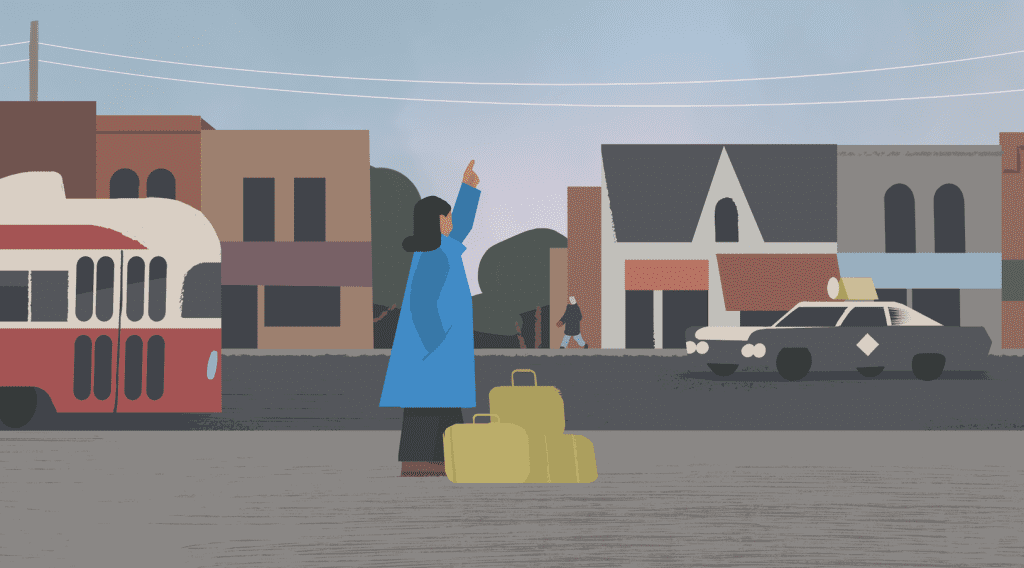
Knowing our place in the past empowers our future. It roots us, tangibly, in human history. Secure in that knowledge, I finally feel fully human. It gives me the strength to speak my full truth as a disabled adoptee. Don and I feel connected to each other and to all the siblings, nieces, nephews and cousins we accept with love, whether or not we ever meet them.
Don and I choose not to see ourselves as abandoned baby birds. We’re flying free of shame. We’re feathering our own nests.
***
Dorothy Ellen Palmer is based in Burlington, Ont.
This story first appeared in Broadview’s January/February 2023 issue with the title ”Born a week apart.”

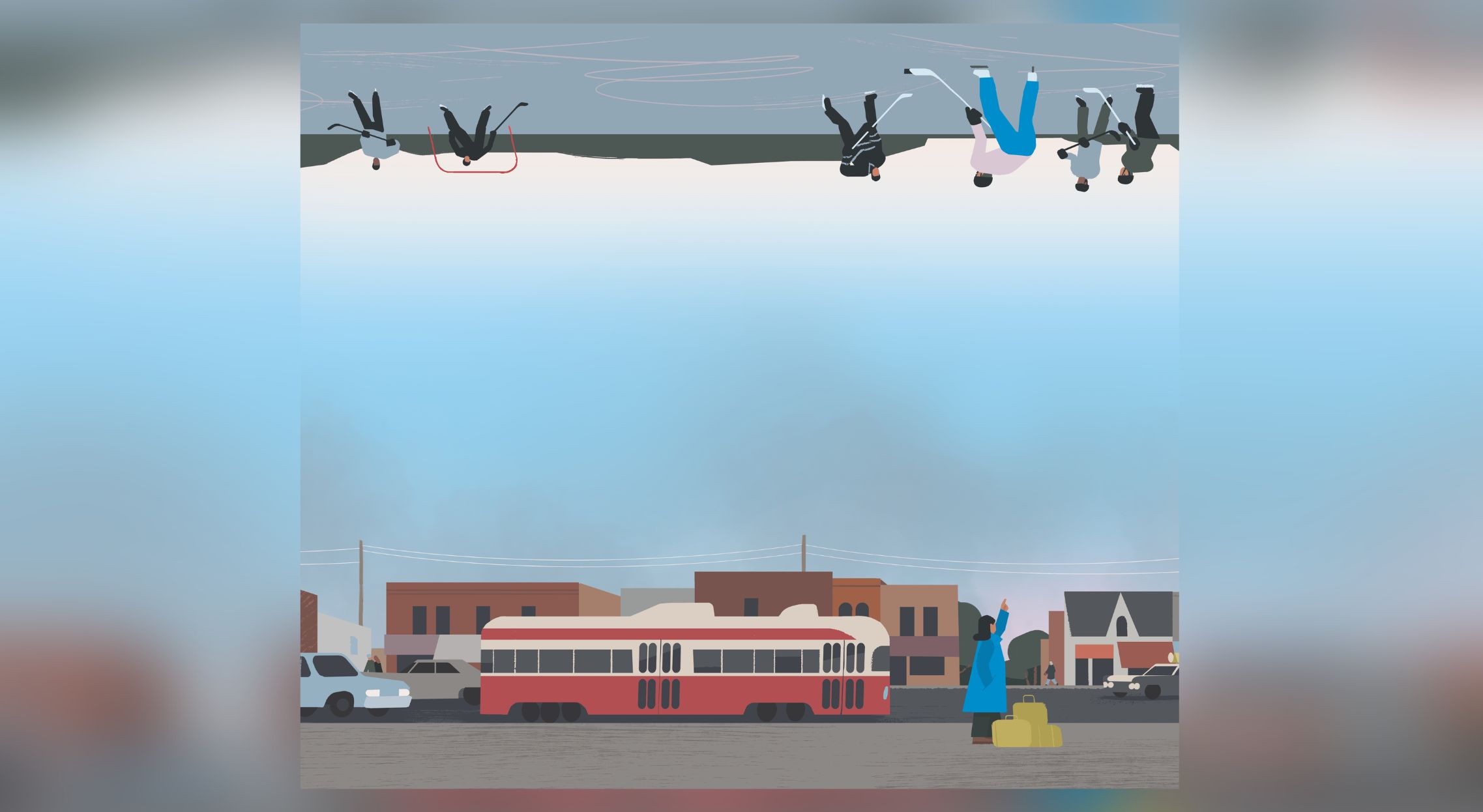


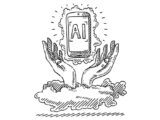
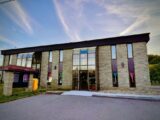
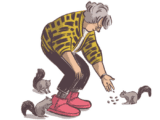







Thank you for sharing your story. I loved that you found your roots and family members and was saddened to find that you had such a short time with your bio mom. My sisters daughter found my sisters family when she was 58. My sister was 79 at the time and in failing health from a car accident and not sure if she was going to live. We couldn’t tell her about her daughter until she was in recovery so there was a bit of delay for a few months. When she was out of hospital and living in an assisted living home, her daughter who lived in US came to visit her in Toronto. Once they made that connection, they saw each other along with siblings 3 or 4 times before my sister passed. My newfound niece although having such a short time with her mom, is now loving and enjoying the family siblings that she never had a chance to grow up with.
This story was so inspiring! As an adoptee also born on June 23, I connect deeply with many of your sentiments and your journey. Thank you so much for sharing, taking the time to craft this beautiful tale. I hope one day to do the same. I have quite a story to tell.
I am sharing this story with my husband and his half-sister, who discovered each other on Ancestry.com. They share a father. They are about to meet each other for the first time, in February!
What a precious story. As a child of an unmarried woman in the early 60’s I can understand some of your pain. My bio Dad died 3 days before I was supposed to see him again after 11 years. The last time I saw him I was about 1½. Hold on to those that love you without judgement. It’s funny. Some of my cousins who I’d never known before turn to me Britt they do my siblings, who they should have always known. It’s all about love!
Very nice piece, I also was disconnected from most of my history but I do not fret about it. Ron
Boring. Self pity. Unresolved anger.